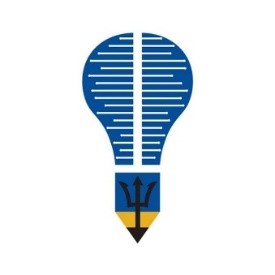
On June 12, 2024, the Ministry of Education, Technological and Vocational Training of Barbados (METVT) and the Independent Agency for Accreditation and Rating (IAAR) signed a Memorandum of understanding on accreditation of medical programmes.
Established in 1974, the METVT is responsible for developing, implementing, and evaluating policies related to education, technology, and vocational training. Its mission is to provide quality education to all Barbadians, from early childhood through tertiary education, by developing curriculum frameworks, providing teacher training, and ensuring access to education for all students.
The METVT also promotes technological and vocational training programs to equip Barbadians with skills for the modern economy. Additionally, it develops policies for special education and the inclusion of students with disabilities, collaborating with other government agencies to align education and training policies with national economic and social development goals.
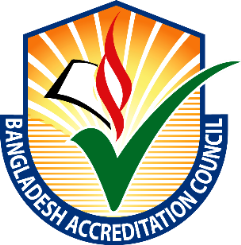
On 30 June 2024, Bangladesh Accreditation Council (BAC) and the Independent Agency for Accreditation and Rating (IAAR) signed a Memorandum of Understanding in the field of quality assurance of education.
The Government of Bangladesh established Bangladesh Accreditation Council (BAC), under an Act, 2017, a statutory body in 2018 to ensure quality education and to accredit the higher education institutions and academic programs thereof. BAC is also responsible for the implementation of the Bangladesh National Qualifications Framework (BNQF). BAC sets the standards and criteria for higher education and collaborates with regional and international quality assurance agencies for international recognition of higher education of Bangladesh.

On June 26, 2024, the Hong Kong Council for Accreditation of Academic and Vocational Qualifications (HKCAAVQ) and the Independent Agency for Accreditation and Rating (IAAR) signed a Memorandum of Understanding in the field of quality assurance of education.
HKCAAVQ (formerly known as Hong Kong Council for Academic Accreditation) was established by statute as an independent statutory body in 1990. HKCAAVQ is the Accreditation Authority and Qualifications Register (QR) Authority under the Hong Kong Qualifications Framework (HKQF). It provides quality assurance and assessment services to education and training institutions, course providers and the general public. In addition to its statutory roles, HKCAAVQ also provides advisory and consultancy services in education qualifications and standards to government bureaux and other organisations in Hong Kong and the Asia-Pacific region.
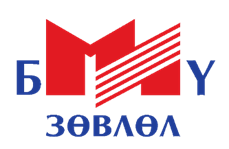
On February 5, 2024, the Mongolian National Council for Education Accreditation (MNCEA) and the Independent Agency for Accreditation and Rating (IAAR) signed a Memorandum of Cooperation in the field of quality assurance of education.
MNCEA is a national body for accreditation of education, founded in 1998 as an independent external agency by the government decision. MNCEA is quality assurance agency for the higher and technical –vocational education.

On November 7, 2023, at the MQA International Conference 2023 in Kota Kinabalu, Malaysia, the Malaysian Qualification Agency (MQA) and the Independent Agency for Accreditation and Rating (IAAR) signed a Memorandum of Understanding on cooperation in the field of quality assurance in education.
The Malaysian Qualifications Agency (MQA), was established on 1 November 2007 with the coming in force of the Malaysian Qualifications Agency Act 2007.
The main role of the MQA is to implement the Malaysian Qualifications Framework (MQF) as a basis for quality assurance of higher education and as the reference point for the criteria and standards for national qualifications. The MQA is responsible for monitoring and overseeing the quality assurance practices and accreditation of national higher education.
With the vision to be a global authority on quality assurance of higher education and the mission to put in place a system of quality assurance that is recognised internationally, the MQA is set to chart new boundaries in higher education
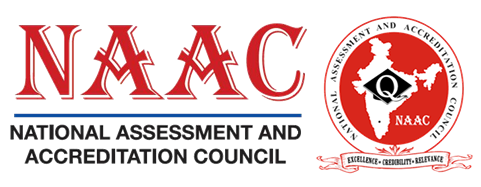
On January 5, 2022, the National Assessment f and Accreditation Council(NAAC) and the Independent Agency for Accreditation and Rating (IAAR) signed a Memorandum of Cooperation in the field of quality assurance of education in the city of Ahmedabad (India).
The National Assessment and Accreditation Council (NAAC) evaluates and accredits higher education institutions, colleges and other recognized institutions to meet quality standards to improve the quality of education in India.

On 20 December 2021, the Independent Agency for Accreditation and Rating (IAAR) and the Association for Evaluation and Accreditation of Teacher Training Programs (EPDAD) signed a Memorandum of Understanding to establish effective cooperation in the field of quality assurance of education.
The memorandum was concluded with the aim of mutual cooperation in the field of quality assurance of pedagogical education, training of competent competitive experts, implementation of joint educational projects, Exchange of experience in the field of independent accreditation of educational programs.

On November 18, 2021, the Independent Agency for Accreditation and Rating (IAAR) and the Council for Quality of Higher Education (YOKAK) signed a Memorandum of Cooperation in the field of quality assurance of education.
YOKAK is a public legal entity with administrative and financial autonomy and a special budget established to assess the quality of higher education institutions in accordance with national and international quality standards, It also coordinates the accreditation processes, internal and external quality assurance and authorization of independent external evaluation organizations.
The main responsibilities of the Council for the Quality of Higher Education are:
- External evaluation of higher education institutions;
- Manage the processes of authorization and recognition of accreditation bodies;
- To internalize and disseminate a culture of quality assurance in higher education institutions.
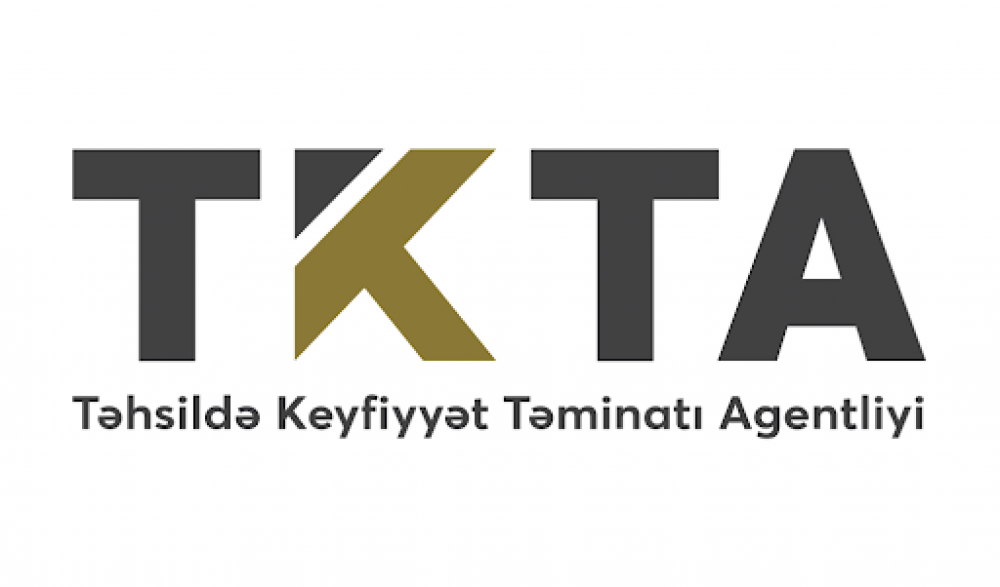
On October 1, 2021, Independent Agency for Accreditation and Rating (IAAR) and The Agency for Quality Assurance in Education (TKTA) have signed a Memorandum of Understanding in order to establish effective cooperation in the field of education quality assurance. According to the relevant Decree signed by the President of the Republic of Azerbaijan on 29.12.2019, the Accreditation and Nostrification Department of the Ministry of Education was reorganised into the Agency for Quality Assurance in Education with the status of a public legal entity under the Ministry of Education. The Agency is a professional and specialised body in the field of independent assessment of the quality of higher, secondary and additional education based on the standards adopted in Azerbaijan and internationally.

On June 28, 2021, Independent Agency for Accreditation and Rating (IAAR) and the Agency for Quality Assurance in Education “EdNet” signed a Memorandum of Understanding in order to establish effective cooperation in the field of education quality assurance. The Agency for Quality Assurance in Education “EdNet” was officially registered on June 22, 2012, with the aim of improving the internal and external quality assurance system and promoting the culture of quality through independent accreditation of educational programmes of higher educational institutions of the Kyrgyz Republic.
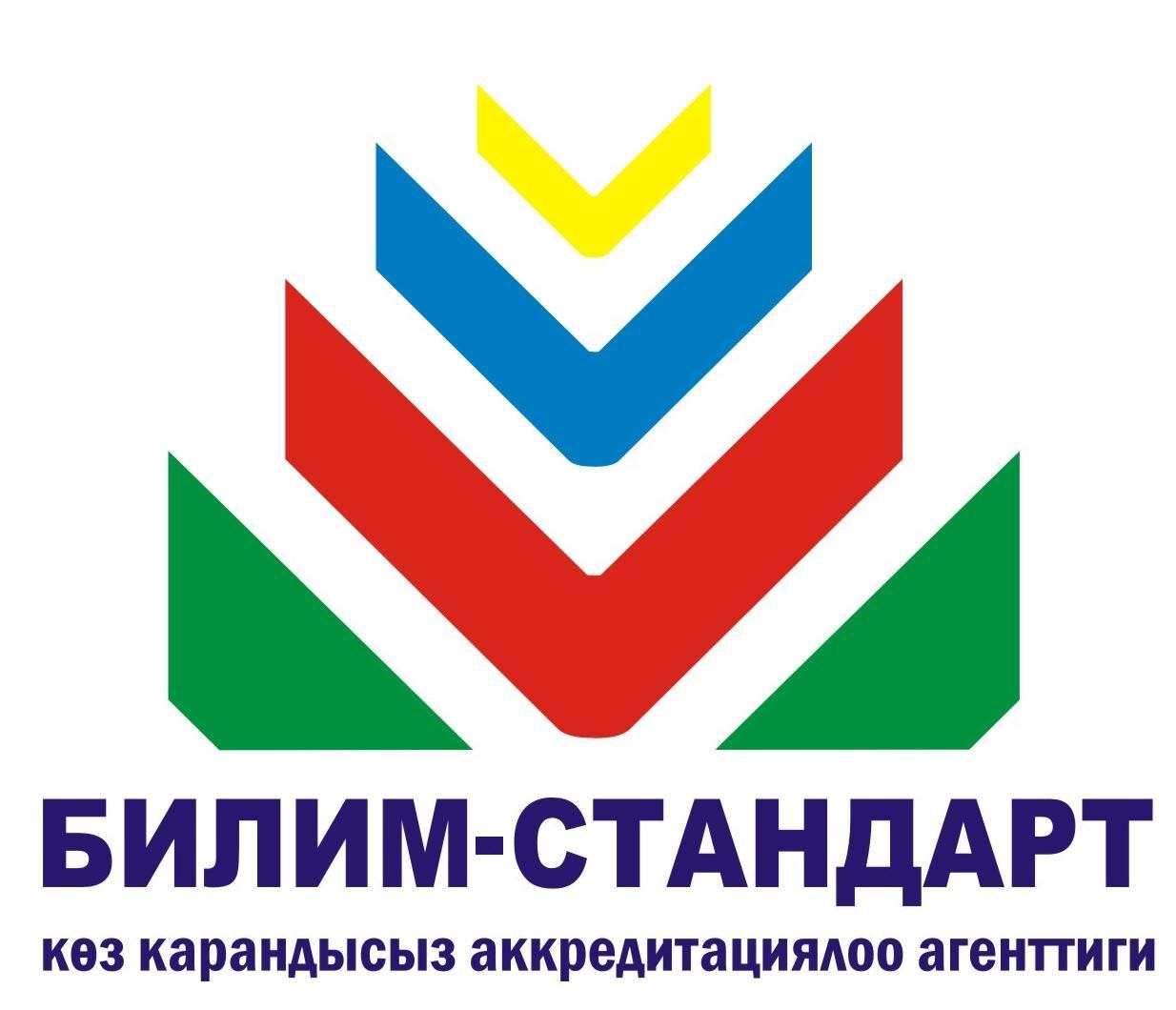
The independent accreditation agency "Bilim-Standard" is recognised by the National Accreditation Council of the Ministry of Education and Science of the Kyrgyz Republic (Order of the Ministry of Education and Science of the Kyrgyz Republic №793/2 as of 16 June 2018).
The main objectives of "Bilim-Standard" are organisation and realisation of institutional and programme accreditation of educational institutions implementing educational programmes of secondary, initial professional, intermediate professional, higher vocational and postgraduate education. The activity of "Bilim-Standard" is aimed at assisting the education system of the Kyrgyz Republic in increasing the competitiveness of graduates through the creation and development of quality assurance systems.
"Bilim-Standard" performs a wide range of functions related to external quality control of higher, professional and general education in Kyrgyzstan, participates in the work of international quality assurance networks (International Quality Assurance Network in Higher Education, Eurasian Education Quality Assurance Network, European Association for Quality Assurance in higher education, etc.)
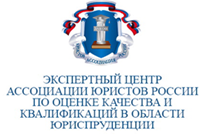
In accordance with Decree of the President of the Russian Federation dated May 26, 2009 No. 599 "On Measures to Improve Higher Legal Education in the Russian Federation", the Association of Lawyers of Russia (hereinafter referred to as the Association) was entrusted with conducting public accreditation of educational institutions of higher professional education that train legal personnel. In order to implement this Decree, the Commission for Public Assessment of Higher Legal Education Quality was created as the accrediting body of the Association (currently, in accordance with Decision of the Board of the Association of Lawyers of Russia dated September 4, 2018 (MoM No. 54). The Commission of the Association of Lawyers of Russia for Jurisprudence Quality and Qualifications Assessment was transformed to the Association's Commission on Legal Education).
.png)
The International Education Center was founded in 2014 and from 2014-2018 it has given 650 study grants to Georgian citizens desiring to study abroad. A portion of them has already concluded their foreign studies, returned to Georgia, and will continue to realize this acquired knowledge in their own country.
The Center’s goal, when taking into account the priorities of state development, is to prepare personnel having skills and knowledge corresponding to international standards. After the conclusion of state financed studies, graduates of masters, doctoral, and foreign qualification enhancement programs return to Georgia and continue working in the corresponding sphere for the three years period. Scholarships are awarded through a competition observing the principles of fairness, competitiveness, and transparency.
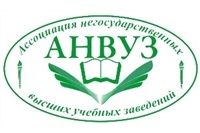
The Association of Non-State Universities of Russia (ANU of Russia) is a large public association in the educational system. It has been operating since 1994 and is a non-profit organization that unites on a voluntary basis non-state educational institutions of higher professional education of the Russian Federation, other organizations and associations whose activities are related to education, science and culture. It was established with the aim of developing and improving education of Russian citizens, strengthening non-state sector as an integral part of the educational system of the Russian Federation, coordinating activities and protecting rights and interests of non-state higher educational institutions.
Main tasks
.png)
The NCEQE was established in 2006 as the National Center for Educational Accreditation (NCEA) to conduct institutional accreditation. After the first round of the revision of the external quality assurance system in 2010, the National Center for Educational Quality Enhancement (NCEQE) was established as its legal successor. The new Law on Educational Quality Enhancement established NCEQE as independent in its activities and operation, with its structure and responsibilities defined in a Charter which was adopted in 2010. NCEQE is recognized as a sole national body authorized to carry out external mechanism of assuring and enhancing educational quality.
The main aims of NCEQE are to promote enhancement of educational quality and development of quality culture at educational institutions through development and implementation of external QA mechanisms and supporting development of internal QA mechanisms at the educational institutions. NCEQE has a broad range of functions relating to the external quality assurance of higher, vocational and general education in Georgia; the National Qualifications Framework and recognition of education.

AMSE creates a forum for European Faculties of Medicine to share experiences in the fields of education, research and management. AMSE seeks to stimulate co-operation between Medical Schools in Europe and to initiate and sustain relations with other professional, governmental and non-governmental organisations in education, research and health care.
AMSE is primarily concerned with the leadership and management of medical schools, and the question of how to run the medical school, and how to manage its relationship with the university hospital and other health-care partners.
AMSE is also interested in the regulatory, quality assurance, political and economic contexts in which the medical school works to fulfil its mission of medical education and medical research.
AMSE organises regular conferences on topics of particular interest to deans, heads of school and other staff members of Faculties of Medicine.

RAEX-Analytics LLC was established in 2015 in connection with the entry into force of new legislation on credit rating agencies, which limited the scope of credit rating agencies activities. Until that time, the RAEX-Analytics team worked as part of the first Russian rating agency Expert RA, founded in 1997, under the common brand RAEX.
RAEX (RAEX-Analytics) is responsible for compiling rankings, assigning non-credit ratings, conducting research on industries and markets, and conducting events on the subject of its analytical activities. More than 50 rankings and ratings are compiled annually, more than 20 conferences and round tables are held. A number of projects are regularly audited by pwc (PricewaterhouseCoopers), a leading international audit company. The ranking of universities has been audited by the international organization IREG, which brings together leading compilers of educational rankings and universities in the world.

The Agency’s mission is to develop and promote the quality culture in vocational education, higher and continuing education, contributing to greater economic competitiveness and social cohesion in the Republic of Moldova.
The aim of the Agency is to ensure an integrated, reliable, objective and transparent system of external evaluation and accreditation of institutions and study programs in vocational education, higher and continuing education in the Republic of Moldova.
Strategic Objectives of the ANACIP
The Agency has the following strategic objectives:
- to contribute to the development and promotion of the quality culture in vocational education, higher and continuing education;
- to evaluate study programs and the capacity of organizations providing vocational education, higher and continuing education in order to achieve the quality standards;
- to ensure the application of the Standards and Guidelines for Quality Assurance in the European Higher Education Area in vocational education, higher and continuing education in the Republic of Moldova;
- to ensure access to public information about the quality of vocational education, higher and continuing education in the Republic of Moldova;
- to propose strategies and policies to partners in order to ensure and develop quality in vocational education, higher and continuing education;
- to promote professionalism and competitiveness of vocational education, higher and continuing education in the Republic of Moldova;
- to obtain international recognition of the Agency.

The National Agency for Higher Education Quality Assurance (NAQA) is a permanent collegial body authorized by the Law of Ukraine “On Higher Education” to implement the state policy in the field of higher education quality assurance.
The mission of the NAQA is to catalyze positive changes in higher education and to shape its quality culture.
The strategic goals of the National Agency are realized in three main directions:
- Quality of educational services.
- Recognition of the quality of scientific results.
- Ensuring the systemic impact of the National Agency`s activities.
NAQA`s values are: partnership, innovation, responsibility, integrity, openness, transparency, independence, reliability, professionalism, demand, trust.
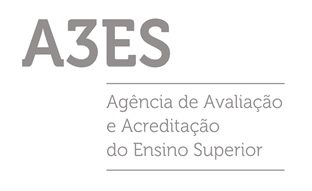
Following the recent development of quality assurance systems, namely those in the European space, the Portuguese state has decided to create the "Agência de Avaliação e Acreditação do Ensino Superior" (Agency for Assessment and Accreditation of Higher Education - A3ES), by Decree-Law no. 369/2007, of 5th November, with the purpose of promoting and ensuring the quality of higher education.
The Agency is a private law foundation, established for an indeterminate period of time, with legal status and recognised as being of public utility. The Agency is independent in its decisions which must take into account the guidelines prescribed by the State.
The assessment and accreditation regime to be developed by the Agency is defined in Law no. 38/2007, of 16th August.
A3ES is responsible for promoting quality provision in higher education, assessing and accrediting higher education institutions (HEIs) and their degree programmes, and promoting the integration of Portugal in the European system of quality assurance of higher education.
The main objective of A3ES is to promote the improvement of the performance of higher education institutions and their study programmes and to guarantee the fulfilment of the basic requirements for their official recognition.
This objective is pursued through the assessment and accreditation activities carried out by the Agency, and the promotion of an internal quality assurance culture within higher education institutions.
The mission of A3ES is to contribute to improving the quality of Portuguese higher education, through the assessment and accreditation of higher education institutions and their study programmes, and to ensure the integration of Portugal in the European quality assurance system of higher education.
.png)
Association of Heads of Institutions and Departments of Additional Professional Education and Employers (CPE Association)
The non-profit partnership “Association of Heads of Institutions and Departments of Continuing Professional Education and Employers” was established on May 30, 2003 to help resolve problem issues in the field of professional development and vocational specialist retraining.
The CPE Association activities are purported to develop and advance the CPE framework system. The key areas of activity are as bellow:
- CPE quality improvement;
- Promotion of interaction of the CPE system with employers and their associations, recruitment agencies and employment services, professional communities;
- integration and coordination of activities of the CPE institutions and departments;
- representation and protection of the rights and interests of CPE organizations in the legislative and executive authorities of state power, local self-government and public associations;
- development of international cooperation with foreign educational institutions, their unions and associations.
The CPE Association membership includes educational organizations of CPE, higher educational institutions or their structural divisions running continuing professional programs, as well as public associations and individuals. Members of the Association are technical and humanitarian educational organizations, including those that train specialists in medicine, culture, and agriculture. Currently, the CPE Association is represented in 41 cities of 38 regions of the Russian Federation with 104 members.

The All-Russian public organization “Medical League of Russia” was established in 2010. The League is an expert organization accredited by Rosobrnadzor for the examination of educational activities in the field of medicine.
The Russian Medical League carries out procedures for professional and public accreditation of educational programs and independent assessment of the quality of educational programs of secondary, higher and additional professional education implemented in medical and pharmaceutical universities of the Russian Federation, ensuring the openness and accessibility of information obtained as a result of the examination.
Mission
- Serve the development, consolidation of the medical community and strengthen Russia's competitiveness in the global competition of research and educational platforms and innovation.
- Integrate the efforts of the medical community, educational institutions, non-governmental organizations to improve the quality of life of the population of the Russian Federation (education, decent job, good income, social protection).
- Promote the development of the all-Russian system of independent assessment of the quality of education, helping to improve the competitiveness of educational organizations.
- Develop, compile and distribute innovative educational technologies, programs, didactic tools and best practices of medical and pharmaceutical educational institutions and regions of the Russian Federation in the field of organization of work on the preservation and strengthening of health of citizens.
The key areas of cooperation between IAAR and the Russian Medical League are:
- increasing the level of openness (transparency) and objectivity in the field of quality assurance of medical education;
- exchange of experience in the field of procedures and mechanisms for the independent evaluation of medical education organizations;
- promoting cooperation through the exchange of experts and etc.

The Institute for Quality Control and Accreditation of Educational Programs in the Field of Culture and Art is an expert organization created with the aim of assisting in the practical application (implementation) of the results of intellectual activity in the educational system in the field of culture and art.
Institute activities include:
- assistance to the improvement and development of education in the field of culture and art, participation in assessing the quality of education at all levels;
- participation in the development of norms and rules of state accreditation examination / professional and public accreditation of educational organizations in the field of culture and art;
- organization of preparation and formation of expert groups for accreditation examination / professional and public accreditation in the field of culture and art, etc.
On October 8, 2019, in Moscow, a Memorandum of Cooperation was signed between the Independent Agency for Accreditation and Rating (IAAR) and the Institute for Quality Control and Accreditation of Educational Programs in the Field of Culture and Art.
The goal of the Memorandum is to establish effective cooperation in the field of the quality assurance of education, preparing competent competitive experts, implementing joint educational projects, and exchanging experience in the field of education.
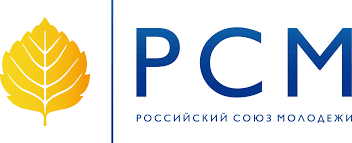
All-Russian Public Organization «Russian Union of Youth» is a youth socially oriented non-profit organization created on May 31, 1990 and uniting hundreds of thousands of young people in most constituent entities of the Russian Federation.
The main goal of Russian Union of Youth is to unite citizens and public associations to promote the full development of the young man, realize his potential in all areas of public life, protect the legitimate interests and rights of young people.
The basics of the Russian Union of Youth activities are:
- openness of organization
- collegiality and responsibility
- continuity and development
- activity and participation.
The cooperation between IAAR and Russian Union of Youth is aimed at interaction in the field of the quality assurance of education, implementation of joint projects, preparation and exchange of experts - representatives of the student movement.

Andalusian Agency of Knowledge, Department of Evaluation and Accreditation (AAC-DEVA, Spain)
The Department of Evaluation and Accreditation (DEVA) is an independent unit of the Andalusian Agency of Knowledge (AAC). It came into legal existence by Legislative Decree 92/2011, April 19th, wherein the Statutes of the Andalusian Agency of Knowledge were approved, in compliance with the provisions laid out in the Andalusian Law 16/2007 of Science and Knowledge.
The aim of AAC-DEVA is the assessment, accreditation and certification of quality within the terms of reference of the Universities and higher education institutions in Andalusia. It covers the fields of institutional quality assessment, teaching staff accreditation and research evaluation.
Mission
Provide service to the Andalusian Higher Education and Research System (SAUI) concerning all the actions requested regarding evaluation and accreditation of Higher Education and Research, Development and Innovation (RDI) activities, adapting the actions to the social demands and quality standards established for University Education and Research within the framework of the European Higher Education Area.
Vision
It aims to become an institution of both national and international reference for the evaluation, certification and accreditation activities, relating to University quality assessment.
Values
All DEVA´s actions are based on the principles of transparency, objectivity, independence, equality and equity, confidentiality, public service and social commitment, legality, coordination and cooperation, efficiency, environmental commitment, security and labour health.

Agency for Development of Higher Education and Quality Assurance (HEA, Bosnia and Herzegovina, Banja Luka)
Agency for Development of Higher Education and Quality Assurance has been established by Framework Law on Higher Education in BiH (Official Gazette of BH No. 59/07), as independent public organization. Council of Ministries of Bosnia and Herzegovina adopted the Decision on Beginning the Work and the Seat of the Agency (which was published in Official Gazette of BH No. 10/08), on the 33rd session on January the 10th 2008. The Seat of the Agency is in Banjaluka.
Independent work of the Agency, within its jurisdiction, related to external quality assurance, shall be achieved by legal, transparent and public selection procedures of domestic and international experts which provides assessment and quality review and give recommendation on accreditation of higher education institutions.
Openess of the Agency’s work shall be achieved in accordance with the Law on free access to information in BH, by submitting work reports to the Parliamentary Assembly and Council of Ministers of BH, and by public medium.
The Agency shall, in performing its tasks, respect following principles:
- legality,
- transparency
- publicity
- efficiency and effectiveness,
- professional impartiality
The Agency shall be financed from the budget of BH institutions, and in the part of jurisdiction related to external assurance, from its own income.
Within its activities, the Agency shall cooperate with relevant domestic institutions - educational authorities in BH, entities, cantons and Brčko District, academic community, international community and relevant stakeholders.
Mission Statement
Vision
Higher education is compatible with European standards and recognisable in international context, and HEA is recognised in the European Higher Education Area.
Mission
Continuous development and enhancement of quality and set quality standards in higher education in BiH, in line with the best European and international practices.
Values
-
Integrity
In our work we are objective and reliable, we respect each other and we always aspire to do better.
-
Professionalism
We apply professional standards in all our processes, both internal and external.
-
Accountability
We are accountable to society as a whole to carry out activities that fall within our competence.
-
Openness
We are open and accessible to the public, which we always keep informed about our work, thus setting two-way communication and building a relationship of trust with all stakeholders.

Foundation “Academic Information Centre”(AIC, Latvia, Riga)
Latvian Academic Information centreis a non-profit institution founded by the Latvian Ministry of Education and Science and by the Institute of Informatics and Computer Science of the University of Latvia.
AIC fulfills two major national and international functions:
- AIC is the Latvian member to the European networks of information centres for academic recognition centres - the ENIC network of the Council of Europe (http://www.coe.fr) and UNESCO (http://www.unesco.org) and the NARIC network of the European Union
- AIC serves as the Latvian National Observatory in the network of National Observatories of the European Training Foundation (http://www.etf.it). National Observatories are aiming at studies of national Vocational and training systems and labour market in order to provide information to both EU institutions and national education policy makers.
According to the amendments of the Law on Higher Education Institutions (LatvijasVestnesis 257 (5137)) and the fact that regulations of the Cabinet of Ministers No. 407, 408 and 409 (14.07.2015) have entered into force, the Academic Information Centre (AIC) establishes the Quality Agency for Higher Education (QAHE).
QAHE operation is based on the following values:
- Objectivity;
- Transparency;
- Nuetrality;
Mission
To promote the quality of higher education thus increase the international competitiveness of the Latvian higher education.
Aims
To ensure the implementation of external quality assurance system in the Latvian higher education according to the Standards and Guidelines for Quality Assurance in the European Higher Education Area as well as to promote improvements in the internal quality assurance systems in the HEI, study directions and study programmes thus promoting the acknowledgement and recognition of Latvian higher education.
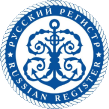
Russian Register
The Certification Association "Russian Register" is the largest internationally recognized Russian certification and expert organization. The independence and objectivity of Russian Register, as well as the competence of their staff is confirmed by numerous national and foreign accreditations and positive experience of more than 15 years of activity.
Russian Register enables clients to receive a comprehensive service for certification, examination and assessment of compliance of various aspects related to management, products and personnel. To carry out certification and expert activities on the basis of Russian Register, there is a body for certification of management systems, a body for certification of products, a body for certification of personnel, an agency for assessing the quality of education.
MISSION:
Russian Register provides its partners with a wide range of certification and expert services, favorable contractual terms and an internationally recognized service.
The work and qualifications of the specialists of Russian Register should not only allow us to assess the strengths and weaknesses of clients' activities in general, but also contribute to their success in the markets of Russia and other countries. In this regard Russian Register, in accordance with national and international requirements, acts as the Authority for the certification of management systems, personnel and products, the Inspection Authority and the Agency for the assessment of the quality of vocational education.
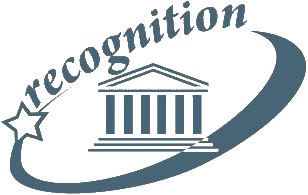
The main activity of Main State Center for Education Evaluation is providing the authority of Rosobrnadzor on recognition of the foreign educational certificates since 2011. The center is carrying out this work based on the State task.
"Glavsekspertsentr" is a national information center of the Russian Federation on information support of education recognition and (or) qualifications, academic degrees and academic titles obtained in a foreign country, in the ENIC / NARIC network. "Glavsekspertsentr" provides authority to the Federal Service for Supervision in Education and Science for the recognition of education in the Russian Federation and (or) qualifications, academic degrees and academic titles obtained in a foreign country.
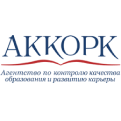
Agency for Quality Assurance in Higher Education and Career Development (AKKORK)
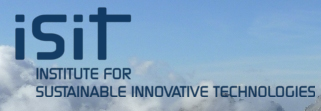
ISIT started to operate at the end of 2008 as a non-profit organization as a legal form of an European Economic Interest Grouping – EEIG. This is a new form of enterprise grouping aiming at integrating knowledge and skills, equipment and human potential from the economic and research spheres and oriented towards the creation of new ‘spin-off’ companies whose technologies are based on newest superior basic knowledge.
MISSION
Main purpose is to promote and manage the transfer of superior technologies into the industrial environment aiming at enhancing competitive capacities and strategic opportunities for enterprises in all economic sectors, and consequently contribute to the progress and prosperity of the society
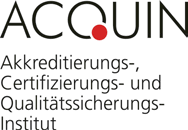
The Accreditation, Certification and Quality assurance Institute (ACQUIN)
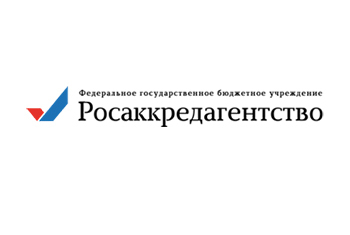
National Accreditation Agency (NAA)
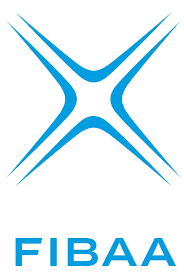
Foundation for International Business Administration Accreditation
When the Accreditation System was established in Germany, FIBAA was founded in 1994 and hence became one of the first agencies to be accredited by the German Accreditation Council. Since 2002, it has been entitled to award the Seal of the Accreditation Council for degree programmes in Germany.
The purpose of FIBAA is to promote the quality and transparency in education and science by awarding quality certificates to educational programs and education institutions in the areas of higher education and continued professional development.
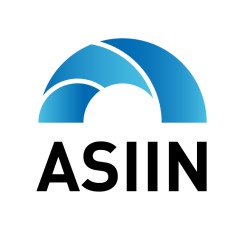
Akkreditierungsagentur für Studiengänge der Ingenieurwissenschaften, der Informatik, der Naturwissenschaften und der Mathematik e.V.
ASIIN e. V. is a registered association in accordance with the law of the Federal Republic of Germany.
The association is supported by many organisations, which view the quality of university education as a central concern. They are associations of universities and universities of applied sciences, expert societies, profession-related organisations, industrial and business associations and unions.
This alliance was first founded in 1999 as the non-profit association ASII for the accreditation of degree programmes in engineering an informatics, which rapidly expanded to ASIIN in 2002 by including the fields of natural sciences and mathematics.
Since 2000, ASII or ASIIN has the right to award the accreditation seal of the German Accreditation Council, in addition to the ASIIN quality seal.
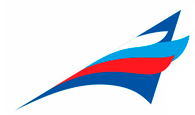
National Centre for Public Accreditation
NCPA is an autonomous nonprofit organization. It was established in 2009 on the initiative of the Guild of Experts in the Sphere of Professional Education and other legal entities to organize and carry out accreditation of higher education institutions.
NCPA’s mission in the Russian system of quality assurance is to form and promote quality culture in higher education through identification, evaluation, and accreditation of the best educational programs in accordance with the legislation of the Russian Federation and the Standards and Guidelines for Quality Assurance in the European Higher Education Area (ESG-ENQA).
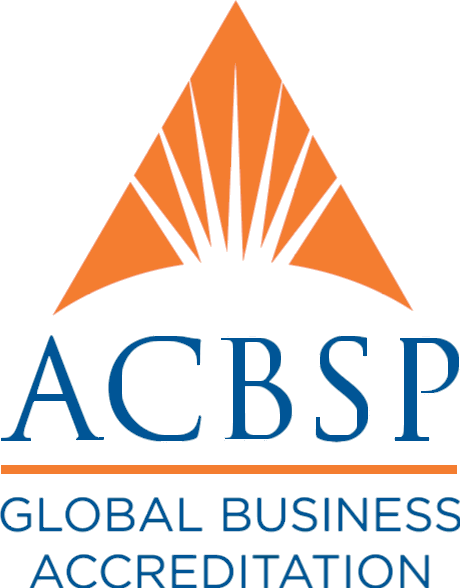
The Accreditation Council for Business Schools and Programs (ACBSP) is a leading specialized accreditation association for business education supporting, celebrating, and rewarding teaching excellence. The association embraces the virtues of teaching excellence and emphasizes to students that it is essential to learn how to learn.